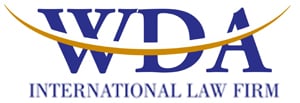An Arizona company sued Apple in federal court last week over the “iCloud” trademark, court documents show.
One legal expert said Apple would likely settle the case for cash.
iCloud Communications, a Phoenix-based provider of VoIP (voice over Internet) and other online services, claimed in a complaint filed Friday that Apple is treading on the trademark it’s been using for several years.
“The goods and services with which Apple intends to use the ‘iCloud’ mark are identical to or closely related to the goods and services that have been offered by iCloud Communications under the iCloud Marks since its formation in 2005,” the a company’s filing stated. “However, due to the worldwide media coverage given to and generated by Apple’s announcement of its ‘iCloud’ services and the ensuing saturation advertising campaign pursued by Apple, the media and the general public have quickly come to associate the mark ‘iCloud’ with Apple, rather than iCloud Communications.”
iCloud charged Apple with unfair competition, trademark infringement under Arizona law and injury to its business reputation, and asked the federal court to block Apple from using the iCloud mark “or any Internet domain name …. confusingly similar to iCloud Marks.”
Earlier this year, Apple acquired the “icloud.com” domain from Swedish company Xcerion. iCloud Communications uses the domain “geticloud.com” for its Web site.
Apple CEO Steve Jobs unveiled his company’s iCloud service last week during the opening keynote of the Worldwide Developers Conference (WWDC), where he talked up the new free online sync and storage service that for most users will replace the three-year-old MobileMe.
At first glance, it may seem Apple has the edge with the iCloud trademark. Last week it registered 11 applications with the U.S. Patent and Trademark Office (USPTO), and has reportedly acquired the already-existing U.S. trademark formerly registered to Xcerion.
Meanwhile, iCloud Communications has not registered the “iCloud” trademark with USPTO, according to searches of the agency’s database.
But that doesn’t prevent iCloud from taking its complaint to court, or even winning, a legal expert said today.
“Although a trademark registration does give you additional rights, there are also what are called ‘common law rights,'” said Brad Salai, a partner with Harter Secrest & Emery who practices patent and trademark law.
Common law trademark rights stem from use of a mark, explained Salai, particularly in a limited geographic area, such as a city or state.
“A trademark from the U.S. Patent and Trademark Office expands that area nationwide,” he noted, but isn’t necessarily the determining legal factor in ownership.
“The point is that two different people can use the same trademark,” Salai said. “The law lets them do that. Of course, that was a lot easier prior to the Internet.”
 In its complaint, iCloud Communications claimed that it used the trademark in its sales, marketing and trade show messaging since 2005, and by doing so, had established “significant goodwill and valuable rights in and ownership to the iCloud Marks in connection with computer telephony and electronic data transmission and storage services.”
In its complaint, iCloud Communications claimed that it used the trademark in its sales, marketing and trade show messaging since 2005, and by doing so, had established “significant goodwill and valuable rights in and ownership to the iCloud Marks in connection with computer telephony and electronic data transmission and storage services.”
Key to the case, said Salai, is whether iCloud Communications can show an overlap between its services and Apple’s. The latter is slated to launch in full this fall.
Salai also anticipated that iCloud Communications would oppose Apple’s trademark registrations with the USPTO. “I would expect iCloud Communications to oppose those applications,” he said.
If iCloud Communications’ claims are accurate — that it’s used the mark since 2005, and used it widely — Salai said Apple would likely settle the dispute out of court. “It’s speculative, but if what iCloud Communications alleges is true, then Apple will be forced to settle,” Salai said.
But all bets are off if iCloud demands the farm
“If a small company is looking for a reasonable settlement, Apple usually settles when they don’t have a strong case,” said Salai, referring to deals Apple has struck with in the past with trademark holders. “But if [iCloud Communications is looking for $100 million or so, Apple will probably take its chances [in court].”







